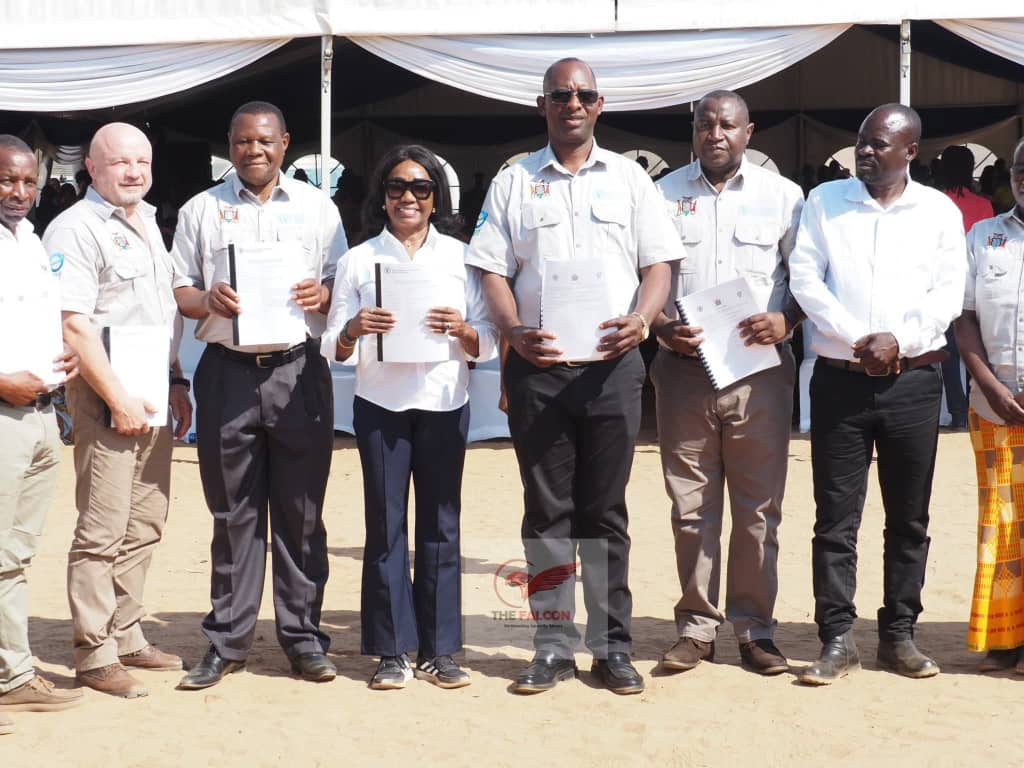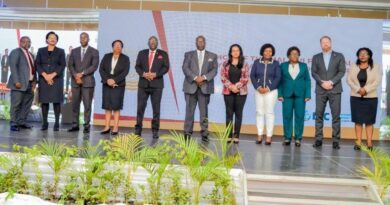GEF-8 Projects Launched to Restore Land and Build Climate Resilience in Zambia
The Government has launched the GEF-8 “Resilient Communities, Land Restoration, Sustainable Ecosystem Management and Loss and Damage Projects” in Siavonga District, Southern Province, aimed at tackling the growing impacts of climate change and environmental degradation.
Speaking at the event, Minister of Green Economy and Environment, Honourable Mike Mposha, said the projects come at a critical time when Zambia is grappling with the triple planetary crisis of climate change, biodiversity loss, desertification, pollution, and waste.
“Zambia is experiencing rising rates of deforestation, land degradation, and climate impacts that threaten both livelihoods and development. These interventions are a strategic response to restore degraded lands, strengthen community resilience, and ensure sustainable ecosystem management,” said Mr Mposha.
The GEF-8 projects will be implemented across six districts in Central and Southern Provinces, namely Mumbwa, Chibombo, Kapiri Mposhi, Siavonga, Chikankata, and Chirundu. The Loss and Damage Project will also establish a national framework to enable Zambia to access international climate finance, supporting vulnerable communities and advancing climate-smart initiatives.
Mr Mposha reiterated the government’s commitment under President Hakainde Hichilema to safeguarding livelihoods and protecting the environment, while thanking the Food and Agriculture Organisation (FAO), the Global Environment Facility, cooperating partners, and traditional leaders for their support.
FAO Representative in Zambia, Ms Suze Percy-Filippini, described the launch as a landmark step towards strengthening Zambia’s resilience to climate change. She said the projects will restore degraded ecosystems, conserve biodiversity, enhance sustainable livelihoods, and empower youth and women to lead in climate action.
“The Loss and Damage initiative will also help Zambia monitor and respond to climate-related shocks such as droughts, floods, and extreme temperatures, while embedding climate-smart approaches into national development planning,” Ms Percy-Filippini added, reaffirming FAO’s full commitment to supporting government and communities.
Meanwhile, Chief Chipepo of the Tonga people in Chirundu District welcomed the initiative and encouraged citizens to rally behind government efforts to address climate change. He commended President Hichilema for people-centred policies, including the increase in the Constituency Development Fund (CDF) and the introduction of free education.
The traditional leader further urged government to introduce a statutory instrument empowering chiefs to act against environmental degradation, particularly deforestation, and called for greater investment in alternative energy sources to reduce reliance on charcoal.



